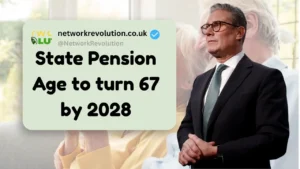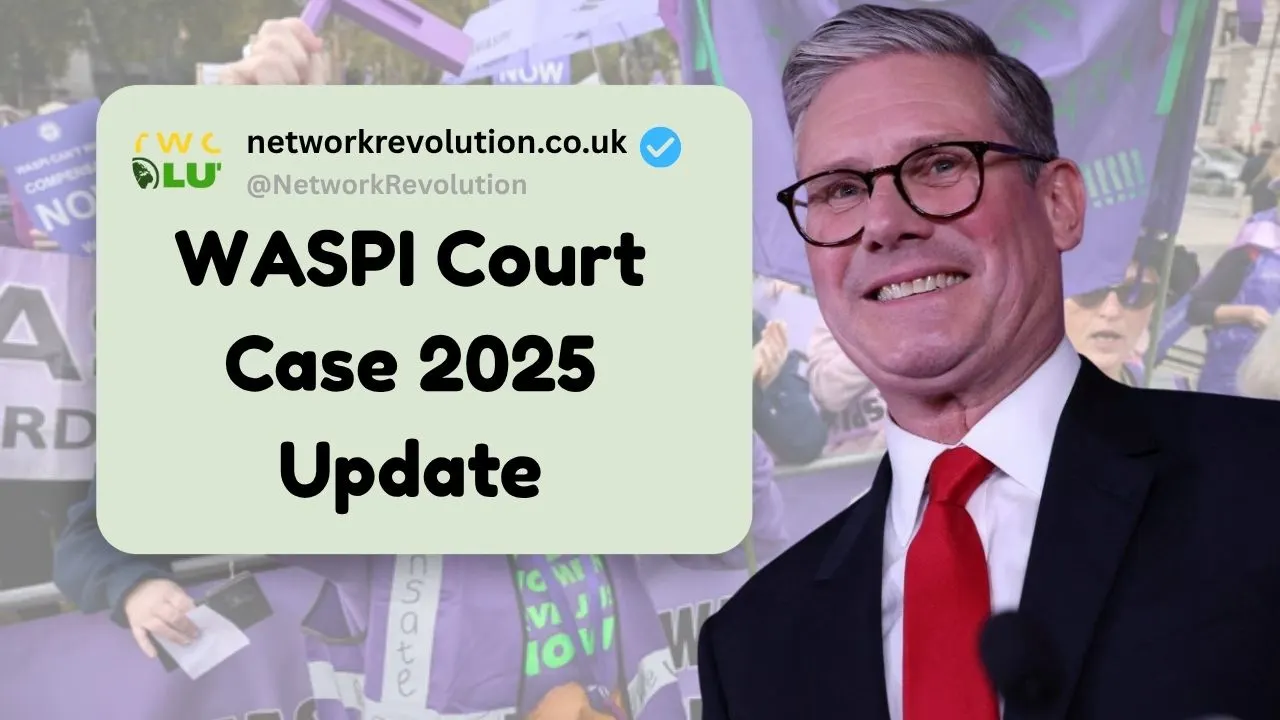The fight for pension equality is reaching a decisive moment. The Women Against State Pension Inequality (WASPI) campaign — representing 3.6 million women born in the 1950s — is taking the UK Government to court in a landmark legal challenge that could reshape pension compensation history.

After years of campaigning and multiple Ombudsman findings, the High Court’s decision in 2025 could finally determine whether the government must pay up to £10.5 billion in compensation for its handling of state pension age changes.
Background: Why WASPI Women Are Taking Legal Action
The controversy stems from the gradual equalisation of the State Pension Age (SPA) between men and women. From the mid-1990s, the UK government began raising women’s retirement age from 60 to 65, and later to 66.

The issue wasn’t the change itself — it was the poor communication surrounding it. Many women say they were never informed properly and only discovered the new retirement age when they were about to stop working.
Ombudsman Findings and DWP Failures
The Parliamentary and Health Service Ombudsman (PHSO) concluded in 2024 that the Department for Work and Pensions (DWP) committed maladministration, delaying critical notices by up to 28 months.
This failure left women unprepared for years of financial hardship, forcing some to work longer, use savings, or take on debt.

“We are not asking for special treatment — we are asking for fair treatment,”
said Angela Madden, Chair of the WASPI campaign.

Key Case Details and Timeline
| Event | Date | Key Outcome |
|---|---|---|
| Ombudsman Report | March 2024 | DWP found guilty of maladministration |
| Labour Govt Rejects Compensation | December 2024 | PHSO’s advice dismissed |
| Judicial Review Filed | April 2025 | WASPI launches High Court challenge |
| Legal Cost Cap Granted | June 23, 2025 | WASPI’s liability capped at £60,000 |
| Full Court Hearing | Expected Late 2025 | Final decision on compensation legality |
The cost cap is crucial — it ensures WASPI can continue its legal fight without risking bankruptcy if it loses.
What the Compensation Could Mean?
If the court rules in WASPI’s favour, compensation could range from £1,000 to £2,950 per person, depending on individual circumstances. This would amount to £10.5 billion nationwide, one of the largest public payouts in UK history.

Potential Compensation Framework
| Category | Estimated Number of Women | Indicative Payment Range | Purpose |
|---|---|---|---|
| Moderate hardship | 1.2 million | £1,000–£1,500 | Administrative delay |
| Significant distress | 1.5 million | £2,000–£2,950 | Severe financial or emotional impact |
| Severe cases | 0.9 million | £3,000+ (if revised) | Long-term financial hardship |
Financial analysts suggest that any compensation payments could be spread over multiple fiscal years to minimize strain on the Treasury.
Political and Economic Implications
The case carries high political stakes. Up to 150 Labour MPs hold marginal constituencies with significant WASPI populations. Campaigners warn that denying compensation could lead to electoral backlash.
Labour’s official stance, led by Prime Minister Keir Starmer and Chancellor Rachel Reeves, maintains that most women had sufficient notice by 2006. They argue that a large-scale payout would “undermine fiscal responsibility”.
However, opposition voices, including SNP pensions spokesperson Kirsten Oswald, have pressed for immediate compensation.
“The government cannot ignore 3.6 million women who were robbed of their retirement years,” Oswald stated during a parliamentary debate.
Expert Opinions on the Case
- Dr. Ros Altmann, former Pensions Minister: “This isn’t just about money — it’s about justice and trust in government. The way these women were treated eroded public confidence in the pension system.”
- Jonathan Reynolds, Secretary of State for Work and Pensions: “We must balance fairness with fiscal reality. The Ombudsman’s report is being reviewed carefully.”
- Paul Johnson, Institute for Fiscal Studies (IFS): “Even a modest payout could strain the Treasury’s pension budget, but ignoring the moral responsibility could carry an even higher political cost.”
Why This Case Matters?
The WASPI judicial review isn’t only about compensation — it’s about accountability in how major policy changes are communicated.
For many affected women, the issue goes beyond financial loss. It’s about dignity, trust, and recognition of the government’s failure to communicate life-altering information.
The case also sets a precedent: how future pension reforms will be managed and how governments must handle large-scale demographic transitions.
What Happens Next?
The High Court hearing is expected to take place in late 2025, with a decision anticipated before spring 2026. If the court finds in favour of WASPI, the government may be forced to develop a structured compensation scheme, similar to redress frameworks used in other maladministration cases.
Campaigners say this legal momentum represents “the last, best chance” for women to receive justice after nearly a decade of delays.
Broader Impact on UK Pension Policy
Experts predict that a WASPI victory could influence:
- Future pension communications — mandating earlier and clearer notice periods.
- Public sector accountability — compelling government departments to adhere to transparency standards.
- Gender equality in retirement planning — encouraging reforms in financial education and pension savings.
According to pension consultant Becky O’Connor,
“Whatever the outcome, this case has already reshaped how we think about fairness in pension reform.”
FAQs
1. Who qualifies as a WASPI woman?
Women born between 6 April 1950 and 5 April 1960 affected by state pension age increases without sufficient notice.
2. How much compensation could they receive?
Between £1,000 and £2,950 each, depending on individual circumstances — possibly higher if the court mandates an expanded redress scheme.
3. When will the final decision be made?
The High Court hearing is expected in late 2025, with a judgment likely in early 2026.
4. Will all women automatically get compensation if WASPI wins?
No. Payments will likely depend on specific eligibility rules and evidence of financial or emotional harm.
5. What happens if the government loses?
The Treasury could face a £10.5 billion payout, implemented through a phased compensation program.
6. Can women still join the campaign?
Yes. WASPI continues to accept new supporters through its official website and donation drives to fund legal representation.

